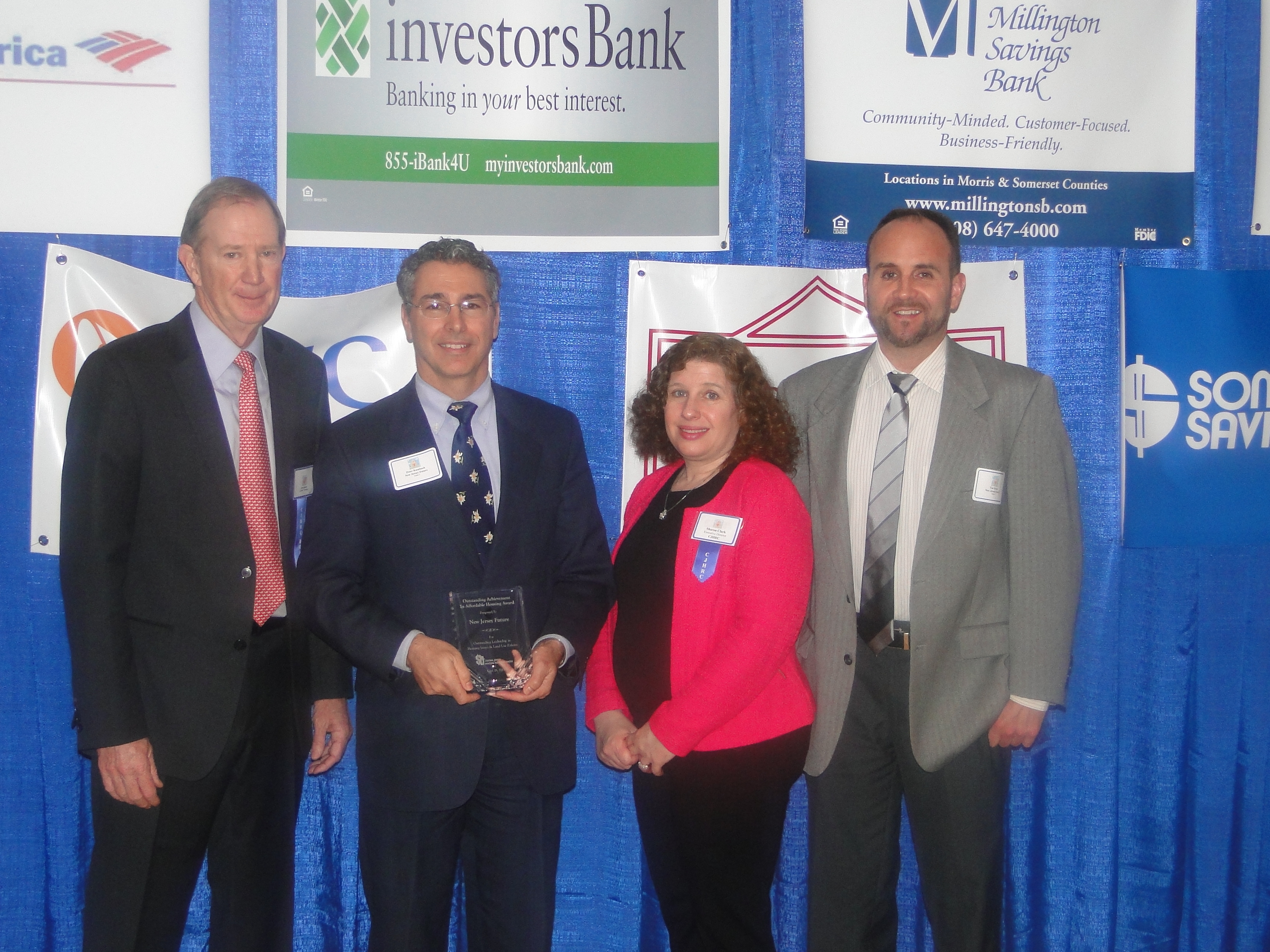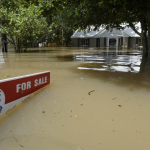New Jersey Future Blog
Forum Plenary: Impact Investing and Systems Thinking
April 10th, 2015 by Elaine Clisham
During the Q&A portion of the morning plenary at Redevelopment Forum 2015 (full session video), moderator and New Jersey Future Trustee Brian Trelstad (presentation) asked the panelists whether the new approaches to investment they had been discussing were really new, or just “old wine in new bottles.”
Reuben Teague from Prudential (presentation) said that the way his firm evaluates potential impact investments — first on their ability to transform, and then on their capacity to provide an acceptable rate of return — was in fact fairly new, and the increasingly rigorous metrics by which the firm evaluates such investments are, in the social investing sphere, very new.
Mr. Teague explained how impact investing works at Prudential, where it has grown to almost a $500 million division with plans to reach $1 billion in social investments by the year 2020. Much of Prudential’s impact investing is centered around the firm’s home city of Newark, where the intent is to transform the downtown into a vibrant, walkable 24-hour space. Mr. Teague provided an overview of investment projects along one retail corridor, which is intended to anchor this transformation. These investments are typical, traditional redevelopment initiatives that will provide an acceptable financial return as well as a public benefit.
By contrast, Shalini Vajjhala from re:focus partners (presentation) said her firm’s approach to investing was much more “new wine in old bottles” — that is to say, the final product is often significantly different when compared to more conventional solutions, but the financing mechanisms that produce it are usually quite traditional.
What’s most different about the re:focus approach is the “systems thinking” process it uses to conceive of elegant solutions to seemingly intractable problems. The firm’s focus has been on solving challenging infrastructure problems in urban environments, and the goal of its recently-completed re:investment initiative, funded by a grant from the Rockefeller Foundation, was to identify cities with significant issues that needed to be addressed, and to work with those cities to produce innovative, holistic and financially viable solutions through a “systems thinking” process. (In the week following the Forum, re:focus released its report on this initiative.)
For all eight partner cities, including Hoboken, the solutions developed all came from seeking answers to three key questions that cities don’t often ask when evaluating large investment needs:
Who is losing money now? This is the group who are the most interested in finding solutions that will reduce their losses. Thus, if the City of Hoboken suffers from frequent flooding, everyone — from the roads department to insurance companies to local businesses cut off from their customers by floodwaters — has a vested interest in finding solutions. Interested parties go well beyond just municipal departments.
How can we turn problems into opportunities? Hoboken identified flooding as the major problem it was trying to solve, but wound up developing a solution that solved not just that one problem but two others: a shortage of urban green space and a shortage of parking. Rather than asking the parks department, the parking authority, and the city’s engineering department to solve each of those problems separately, re:focus looked at the problems systematically, and proposed a solution that provides an underground parking deck, on top of which is an urban park that can absorb stormwater and within which the bottom level is a sealed chamber that can serve as a “bathtub” to hold additional stormwater during heavy rains.
Are there innovative ways to share the financial burden? Building a park, or a parking deck, or a stormwater detention basin, as a separate project represents a significant financial investment. But a project that solves multiple problems may also offer the opportunity to share costs across multiple funding sources, or as Vajjhala said, to bring together “different colors of money.” This takes a degree of what Vajjhala called “bureaucratic jujitsu” to pull together, but it leverages funds from multiple sources rather than just one.
A question from the audience highlighted the issue of the “cost of avoidance” — the tendency for cities to avoid large investments because public funds aren’t available, but not to consider the costs of that avoidance. Vajjhala advised trying to list and cost out absolutely all the preventable losses that would accrue from not investing — everything from rebuilding a washed-out street to insurance payouts to cover damaged basements to the cost of asthma-triggered hospital visits due to mold — and then try to involve those who would be forced to incur those costs to find ways use some of the savings to help finance a project. Where data doesn’t exist, proxies can be developed, she said, so that a reasonable estimate can be developed.
Another question asked what to do if, in sailing parlance, the project is difficult enough that you have to tack rather than sail directly toward your goal? Make each change of direction a goal — a “win” — of its own, Vajjhala advised, saying that ultimately you’ll get to the final destination, and you’ll have many interim successes that you can use to maintain support for the project. But if the final destination really does prove too difficult to reach, she said, consider either changing the destination or changing the type of boat — the tools you employ — in order to get there. “We’ve been in the sailboat and needed to find a motorboat more than once,” she finished.




















Excellent reporting. The detail and scope are very useful and greatly appreciated.